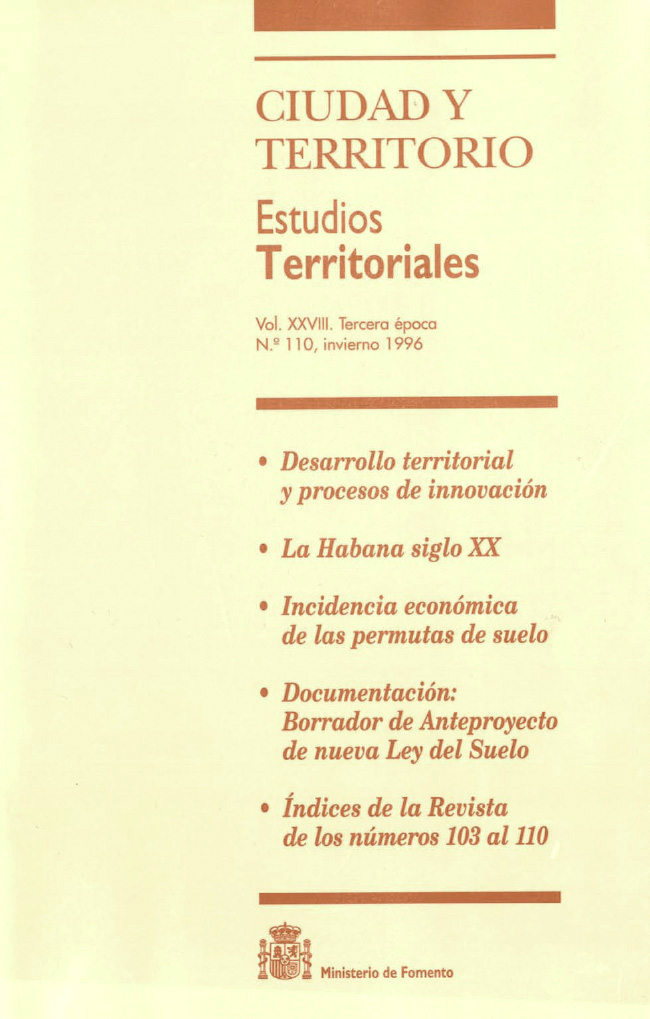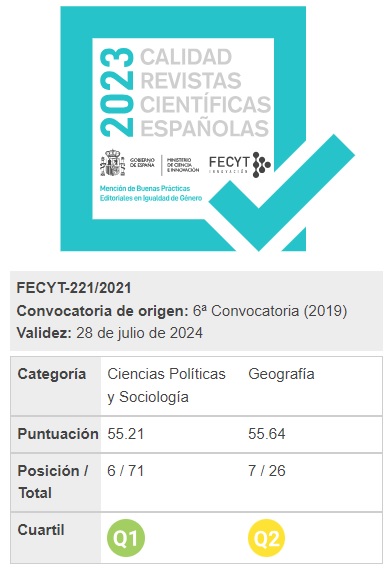Territorial development and innovation processes: the milieux innovateurs (creative environments)
Abstract
The paper tells of how the latest theories for explaining regionalized economic growth make much of the idea of a variable endogeny i.e. their breeding this as of themselves. Such theories point up the capacity of certain territories for generating and transmitting innovation. The author analyses one of these theoretical suggestions (milieux innovateur) which gives special attention to the territorial dynamic to innovation and the importance of this as within the territorial development process in general. The paper indeed aims at an understanding of the content of this proposition and explains that within this idea, the concepts of the feeding upon itself of innovation, reseaux d'innovation and milieux innovateurs are central. Organization is also seen to play a prime role in the innovative process. The author thus holds that, there being a link up between organization and agglomeration, it would be possible to demonstrate the relevance of territory and local variables in the process of innovation/self-renewal.
Downloads
Downloads
Published
How to Cite
Issue
Section
License
Copyright (c) 1996 Elles Furló Blasco

This work is licensed under a Creative Commons Attribution-NonCommercial-NoDerivatives 4.0 International License.
Considering the provisions of the current legislation on Intellectual Property, and in accordance with them, all authors publishing in CyTET give -in a non-exclusive way and without time limit- to the Ministry of Transport, Mobility and Urban Agenda the rights to disseminate, reproduce, communicate and distribute in any current or future format, on paper or electronic, the original or derived version of their work under a Creative Commons Attribution-NonCommercial-NoDerivative 4.0 license International (CC BY-NC-ND 4.0), as well as to include or assign to third parties the inclusion of its content in national and international indexes, repositories and databases, with reference and recognition in any case of its authorship.
In addition, when sending the work, the author(s) declares that it is an original work in which the sources that have been used are recognized, committing to respect the scientific evidence, to no longer modify the original data and to verify or refute its hypothesis. Author(s) also declare that the essential content of the work has not been previously published nor will it be published in any other publication while it is under evaluation by CyTET; and that it has not been simultaneously sent to another journal.
Authors must sign a Transfer of Rights Form, which will be sent to them from the CyTET Secretariat once the article is accepted for publication.
With the aim of promoting the dissemination of knowledge, CyTET joins the Open Journal Access (OA) movement and delivers all of its content to various national and international indexes, repositories and databases under this protocol; therefore, the submission of a work to be published in the journal presupposes the explicit acceptance by the author of this distribution method.
Authors are encouraged to reproduce and host their work published in CyTET in institutional repositories, web pages, etc. with the intention of contributing to the improvement of the transfer of knowledge and the citation of said works.








 Enlace a CyTET en Linkedin
Enlace a CyTET en Linkedin